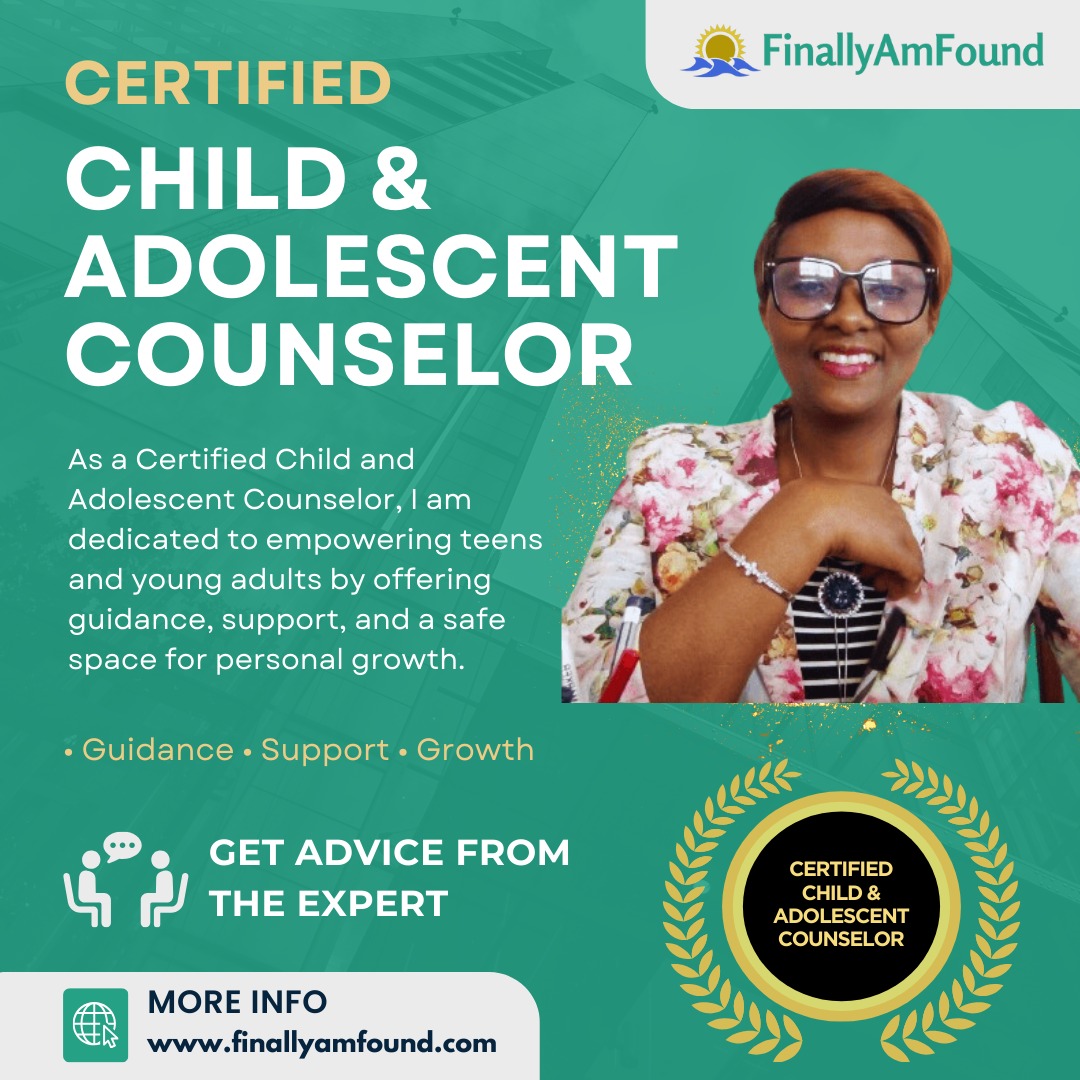Conflict between teens and parents is completely normal—it’s a part of growing up. If you’re a teenager, chances are you’ve had your fair share of disagreements with your parent(s). As you start becoming more independent, your parents might still be adjusting to the idea of you making your own decisions. Understanding what causes these conflicts and how to handle them can make life at home less bumpy.
It’s important to understand that disagreements between teens and parents are natural and often stem from the desire for greater autonomy and self-expression. As a teenager, you’re going through a major life stage where you’re trying to figure out who you are and what you want. And your parents are probably trying to figure out how to let you go while still keeping you safe. Sometimes, the reasons for these disagreements can be as simple as different opinions about what to wear, doing or prioritizing your homework, church matters, how late you can stay out, or who you can hang out with. Other times, they might stem from deeper issues, parental separation, or school preferences, or worries about your future or their hopes and expectations for you. They might not always communicate their concerns in a way that feels supportive, leading to misunderstandings on both sides.
Remember as a teen you have your part to play, as well as your parent in enhancing the development of your best self. Therefore, play your role well.
Why Do These Conflicts Happen?
Growing Independence
As a teen, you’re learning to figure out who you are and what you want. Naturally, you want more freedom to make decisions and live your life the way you see fit. You believe you have it all figured out and your parents are old-school. Parents, on the other hand, may be concerned about your safety and well-being. This clash between your need for independence and their need to protect you is often a major source of conflict.
Communication Differences
Sometimes, parents might speak to you in a way that feels controlling or critical. They might have more experience, but that doesn’t mean they always understand what you’re going through. Meanwhile, you might feel like they don’t listen or take your opinions seriously. This difference in communication styles can lead to misunderstandings.
Different Priorities
You and your parents might not always agree on what’s important. You might value socializing or hobbies, while they might focus on academics or family responsibilities. These differences in priorities can result in clashes over curfews, screen time, or how you spend your free time.
Dating and Personal Choices
As you start dating or exploring your own sexuality, your parents may worry or be uncomfortable. They may have strict rules or different views based on their family, cultural, or personal beliefs, while you might feel ready to make your own decisions in this area. These topics can be sensitive and lead to conflicts if not handled with understanding from both sides.
Other external factors contribute significantly to these conflicts. Peer pressure, familial expectations, and societal judgments all weigh heavily on young parents, pushing them to confront their choices in ways they might not have anticipated. These influences can lead to feelings of inadequacy or resentment, as they navigate the complexities of relationships with partners who may not fully understand their experiences.
Support Systems
Support systems, or lack thereof, also play a crucial role. Many teen parents find themselves without adequate resources or guidance, leaving them to face challenges alone. Without mentors or role models, they may resort to trial-and-error parenting methods, which can further fuel disagreements.
Modeling Behavior
Teenagers may learn conflict resolution skills (or lack thereof) from their parents. If parents model aggressive, dismissive, or avoidant behavior, their teenagers may adopt similar strategies.
Generation Gap
The difference in values, attitudes, and parenting styles between parents and teenagers can lead to misunderstandings and conflicts. Parents may have grown up in a different time, with different social norms and values, which can clash with their teenager’s perspective.
Stress and Pressure
Both parents and teenagers may be experiencing stress and pressure from various sources (e.g., school, work, social media), which can contribute to conflicts and tension at home.
Different Expectations
Parents and teenagers may have different expectations about roles, responsibilities, and goals, leading to conflicts over issues like academic performance, career choices, or household chores.
Hormonal Changes
Puberty brings significant hormonal fluctuations, leading to mood swings and intense emotions, making teens more prone to conflicts. The adolescent stage is a time of significant physical, emotional, and cognitive change. This can lead to conflicts as teenagers navigate their identity, self-expression, and autonomy.
Boundary Testing
Teens naturally push boundaries to test their limits, which can be perceived as a challenge or a provocation by parents.
Nostalgia vs. Evolution
Parents may nostalgically remember the days when their child was more affectionate or obedient, feeling disappointed or worried about their teen’s changing behavior and the evolving relationship.
Changing Social Roles
Teens increasingly prioritize relationships with peers, leading to a shift away from family-centered relationships. Peer influence is a significant factor; teenagers are heavily influenced by their peers, which can lead to conflicts with parents who may not approve of their friends or social activities. This shift can create tension as parents struggle to adapt to their child’s growing independence.
How to Handle Teen-Parent Conflict
Communicate Honestly
It’s easy to get frustrated during an argument, but try to stay calm and express your feelings clearly. Let your parents know why you feel the way you do. Avoid yelling or shutting down. Instead, explain your thoughts and feelings respectfully. When both sides communicate openly, it’s easier to find a solution. Practice patience—it’s a two-way street. While navigating the rocky waters of teenage independence, your parents are adjusting to a new role too. Conflicts may still arise, but by working on communication and understanding together, you’ll find a way to coexist happily and grow closer through the process. Remember, it’s all part of a journey, and with a little effort from both sides, it can become a smoother ride.
Seek to Understand, Not to Win
The goal of the conversation should be to understand each other’s point of view and find a solution that works for both of you, not to “win” the argument. If the conversation becomes too heated, take a break and revisit the topic later when you’re both calm.
Choose Your Battles Wisely
Not every disagreement is worth a big fight. It’s important to consider which issues truly matter to you. If it’s something minor, it might be best to let it slide, but if it’s really important to you, don’t be afraid to speak up calmly and maturely. Remember, sometimes you have to be willing to compromise to find a solution that works for both parties.
Self-Regulate Emotions
Master your body and the emotions that come with hormones and your developmental stage. Remember to take a pause when you sense anger or frustration building up. Embrace relaxation methods like deep breathing or meditation. Talk to God about it too. Channel your emotions in positive ways, such as through physical activity, art, or writing.
Understand Their Perspective
Even if it feels like your parents don’t understand you, try to see things from their point of view. They were once teenagers too, and most of the time, their rules or decisions are rooted in concern for your safety or future. If you understand why they’re saying “no,” you might find it easier to negotiate or explain your point. And be more empathetic.
Setting Boundaries and Expectations
As a teen, it’s natural to test boundaries and push limits to explore your independence and individuality. However, it’s essential to handle this process in a way that respects your parents’ concerns and boundaries while also expressing your needs and desires. This involves discussing your needs and setting limits on behavior and responsibilities. It’s also helpful to be open to compromise and negotiation during these discussions.
When communicating with your parents, it’s important to express yourself clearly. Use “I” statements to express your feelings and needs. For example, instead of saying, “You’re always on my back,” say, “I feel stressed when I’m constantly monitored.” Express expectations clearly. Boundaries are like invisible lines that define your personal space and comfort level. They can change over time as you grow and mature. Pushing boundaries can be a normal part of adolescence, but it’s important to do so in a respectful and responsible way.
Example of Healthy Boundary Testing:
“Mom, I know we have a curfew, but I’ve been responsible with my schoolwork, and I’d like to stay out a little later with friends on Friday evening. Can we discuss this and find a compromise?”
Example of Unhealthy Boundary Testing:
“You can’t tell me what to do! I’m going to do what I want, and you can’t stop me.” (This is an example of manipulative behavior and disregard for boundaries.)
Negotiate
If you feel like your parents’ rules are too strict, try suggesting a compromise. For example, if they’re setting an early curfew, ask them if you can extend it by half an hour if you promise to check in and keep them updated on where you are. Showing responsibility and maturity might lead to more trust and freedom over time.
Take Responsibility
Own up to your mistakes and apologize when necessary. Take responsibility for your actions and their consequences. Make amends when you’ve hurt them or caused problems.
Show Appreciation and Respect
Express gratitude for your parents’ efforts and sacrifices. Show respect for their values and traditions. Celebrate your differences and learn from each other.
Ask for Space with Respect
When dealing with parental inquiries, it is essential to uphold respect and assert boundaries because your parents will remain parents, not your peers. While acknowledging the significance of parental guidance, it is imperative to communicate respectfully the need for personal space and autonomy. Express your appreciation for their insights while emphasizing the importance of independent decision-making and personal growth. Reassure them not to worry too much about you as you become the best version of yourself.
Inform Parents About Your Needs
When discussing your needs with your parents, it’s important to be open and honest. Share specific examples of situations where you felt supported or unsupported. Explain how certain behaviors or actions from your parents have impacted you. Additionally, provide details about your goals and aspirations, and how you believe their support can help you achieve them. This could involve discussing specific areas where you need assistance or guidance, whether it’s related to academics, extracurricular activities, career choices, relationships, or personal development. By being detailed and specific, you can help your parents understand exactly how they can support you.
Respectful Disagreement
It’s normal to have differing opinions from your parents, and it’s important to express your viewpoint in a respectful and considerate manner. Instead of becoming defensive or dismissive, angry, or throwing hands, listen actively to their perspective and communicate your thoughts calmly. Remain in control, recognizing that they, like you, are human and subject to a range of emotions. Strive to find common ground and be open to finding a compromise that respects both parties’ viewpoints.
If you find yourself reflecting your parents’ conflict-ridden behavior, there’s hope for breaking the cycle so that you have better communication in your current relationships and future loved ones. Start by recognizing the pattern and acknowledging the behaviors, attitudes, and communication styles you’ve adopted. For instance, if your parents often raise their voices during disagreements, you may find yourself doing the same in your own relationships. Then, look for positive role models in your life, such as a teacher or a priest who actively listens to students’ concerns, or a mentor who remains calm in heated discussions, or a reliable friend’s parent. Read self-help books, ebooks, podcasts, etc. Practice self-reflection, and develop healthy communication skills like active listening and assertive expression, such as saying, “I feel frustrated when you interrupt me; can we take turns speaking?” instead of “You always interrupt me and never listen.” Learn effective conflict resolution skills, such as staying calm and composed, focusing on the issue, and seeking common ground. For example, if you and a friend disagree on plans for the weekend, try to focus on finding a compromise that works for both of you, rather than getting stuck on your own way.
Additionally, prioritize self-care and set boundaries in your relationships, such as taking a break from social media to reduce stress or communicating your needs clearly to your loved one.
Finally, take the time to reflect on past conflicts with your parents, and work towards forgiving and letting go of any lingering resentment. You don’t want this anger to orchestrate your life. Celebrate the progress you’ve made in your relationship, no matter how small it may seem. Remember to appreciate the efforts both you and your parents have put in to improve your connection and communication.
As a teen, navigating the evolution of your relationship with your parents can be challenging, especially when they nostalgically remember the days when you were more affectionate or obedient. To address this, it’s essential to communicate openly with your parents, validating their feelings and reassuring them that you still love and care about them, even if you’re becoming more independent. You can say something like, “I know you might be feeling a little worried about how I’m changing, but I want you to know that I’m still the same person, and I love you just as much as I did when I was younger.” It’s also important to respect their boundaries and find new ways to connect, such as suggesting activities you both enjoy or setting aside dedicated time to spend together. With time, they will enjoy the change. By being patient and understanding, you can help your parents adjust to the new dynamics of your relationship, and strengthen your bond as you continue to grow and evolve together.
As you prioritize relationships with peers and shift towards greater independence, it’s essential to communicate openly with your parents about this change. Let them know that you value your relationships with them, but you’re also developing stronger bonds with your friends, and that this is a natural part of growing up and that you still value their advice. Be inclusive and encourage them to join in on activities or outings that interest them, while also respecting their boundaries and need for alone time. Continue to participate in family activities and traditions, and express gratitude to your parents for their support and understanding during this transition. By doing so, you can help your parents adapt to your growing independence and reduce tension in your relationships.
As a teen navigating the hormonal changes of puberty, it’s essential to recognize and manage your emotions to reduce conflicts with your parents. Acknowledge how you’re feeling and communicate openly with your parents about your emotions, letting them know that it’s normal for you to fluctuate during this time. Find healthy outlets for your emotions, such as exercise, journaling, or creative pursuits, and practice self-regulation by taking a step back and calming down when you feel your emotions escalating. If you’ve had a conflict, apologize and make amends to repair your relationship and improve communication. By seeking support from trusted adults and practicing these strategies, you can better manage your emotions and reduce conflicts with your parents, leading to a more harmonious and supportive relationship.
If you’re having trouble resolving the conflict on your own, consider seeking help from a trusted adult, such as a school counselor or therapist.
Final Thoughts: Building a Stronger Relationship
It’s easy to focus on the conflicts, but your relationship with your parents can grow stronger if you both make an effort to understand each other. Remember, most of the time, your parents just want the best for you. They might not always express it in a way that makes sense to you, but their love and concern are usually behind their actions.
Conflicts with your parents won’t disappear overnight, but they don’t have to be constant battles either. By communicating openly, picking your battles, and trying to see things from their perspective, you can reduce tension and build a better relationship with your parents. You’re both learning how to navigate this new phase in your life, and with patience and respect, it can be a smoother journey for both of you.
Proverbs 1:8 – “Listen, my son, to your father’s instruction and do not forsake your mother’s teaching.”
Colossians 3:20 – “Children, obey your parents in everything, for this pleases the Lord.”
Prayer
Dear God, I don’t know what to do. I feel so frustrated and stuck. Mom and Dad don’t seem to understand me, and it feels like we’re constantly fighting. I try to talk to them, but it always ends in yelling and tears. Lord, I know I’m not perfect, and I make mistakes. But it feels like they’re always expecting me to be someone I’m not. They don’t trust me, and it hurts. I wish they could see that I’m trying my best, but it feels like no matter what I do, it’s never good enough. Please help me, Father. Give me the patience and understanding I need to deal with this situation. Help me to communicate with Mom and Dad in a way that they can hear and understand. Give me the courage and wisdom to stand up for myself, but also to be humble and listen to their perspective.
I know I’m not alone in this struggle. You’re always with me, guiding me and loving me, even when my parents and I don’t see eye to eye. Help me to keep my eyes on You, and not on the conflict and help me be the best You want me to be. Lord, I pray for my parents, too. Help them to see me as the person You created me to be. Give them wisdom and discernment as they parent me, and help them to communicate with me in a way that’s loving and supportive. I forgive them for provoking me. Please bring peace and calm to our home, Lord. Help us to find common ground and to work through our differences. I know we can’t do this on our own, but with Your help, I know we can find a way forward.
Thank you, God, for being my rock and my refuge. I love You, and I trust You to guide me through this tough time.
In Jesus Christ’s name, I pray and believe. Amen.
Hey, I’m Angeline, your RN and founder of Finally Am Found. With a heart for mentorship, I’ve been guiding teens and young adults since 2017. As a Registered Nurse, I blend medical expertise with personal experiences to create a Christ-aligned space for self-discovery. Connect with Angeline on Facebook and let the journey to self-discovery begin!















